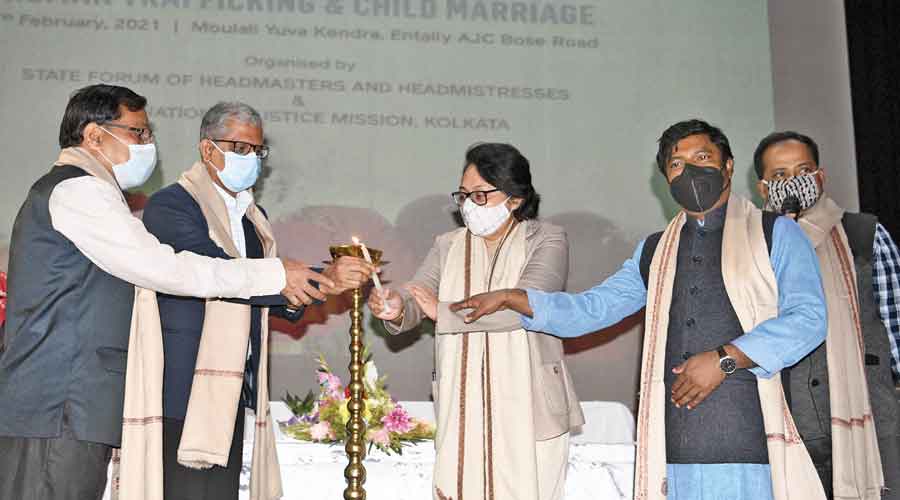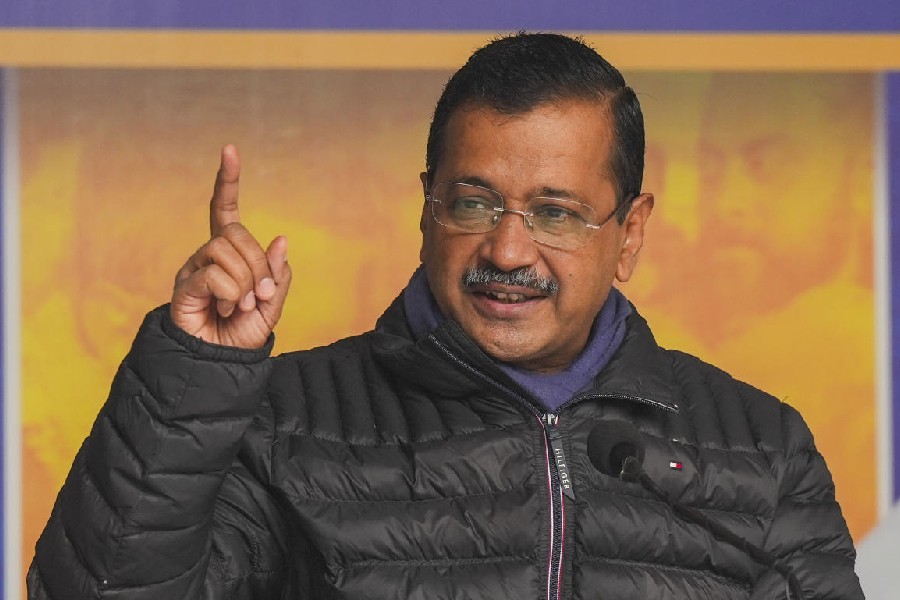Many students who have dropped out in the wake of the long closure of schools are vulnerable against trafficking, early marriage and child labour, people at the helm of schools said in Calcutta on Sunday.
Over 100 headmasters and headmistresses from 23 districts of Bengal assembled at a city auditorium on Sunday to discuss ways to combat trafficking against the backdrop of the pandemic.
“There were 450 Madhyamik aspirants in our school before the pandemic. But around 350 of them have enrolled for the exam. The rest have not contacted the school for a long time,” said Chandan Kumar Maity, the headmaster of Krishnachandrapur High School in Mathurapur, South 24-Parganas.
All schools have been closed since March last year as a precaution against Covid-19 and classes are being held on digital platforms. The state government has allowed the reopening of schools from February 12 for students of Classes IX to XII.
“Most of the parents are extremely poor. Their livelihood has taken a massive hit because of the pandemic. Many of them want to get their girls married off,” said Maity, the general secretary of the State Forum of Headmasters and Headmistresses, West Bengal (SFHM).
The forum had organised the day-long workshop, in association with International Justice Mission, an NGO that works with trafficking survivors.
Maity has been campaigning in South 24-Parganas to raise awareness about the perils of trafficking for almost two decades and has rescued over 200 girls from child marriage and trafficking.
Maity echoed many child rights activists who fear the economic hardship caused by the lockdown might prompt many parents to consider getting their underage daughters married to men who do not demand dowry. Traffickers are always on the prowl, looking for such vulnerable families, they said.
The Telegraph has reported on a spike in child marriages in the districts of South and North 24-Parganas during the lockdown.
“My area has over 400 brick kilns. There are a lot of daily wage earners. Their children are most vulnerable to these threats…. I cannot keep an eye on all of them. There is a block child protection wing but that is not enough. We need an institutionalised support system,” said Shyamal Kumar Majumder, the headmaster of a school in Murshidabad.
“It is imperative to stop child marriage. It is imperative to change the way girls see themselves. A girl should know that she is no less than her brother. A boy should treat his sister as an equal. Teachers have a huge role to play in bringing about a change in the mindset,” said Ananya Chatterjee Chakraborti, the chairperson of the West Bengal Commission for Protection of Child Rights ( WBCPCR).
Last month, the commission had recommended to the education department that schools be reopened for senior classes and students called to the campuses in a staggered way.
“The majority of stakeholders stressed the importance of reopening the schools immediately (especially Class IX and above) for the benefit of rural children, many of whom are drifting into child labour or are being forced into child marriage by their families,” the commission had said.
“Any grassroots campaign against trafficking is incomplete without transforming schools. The key to transformation is with the headmasters and headmistresses,” said Saji Phillip, the director of operations of IJM.











